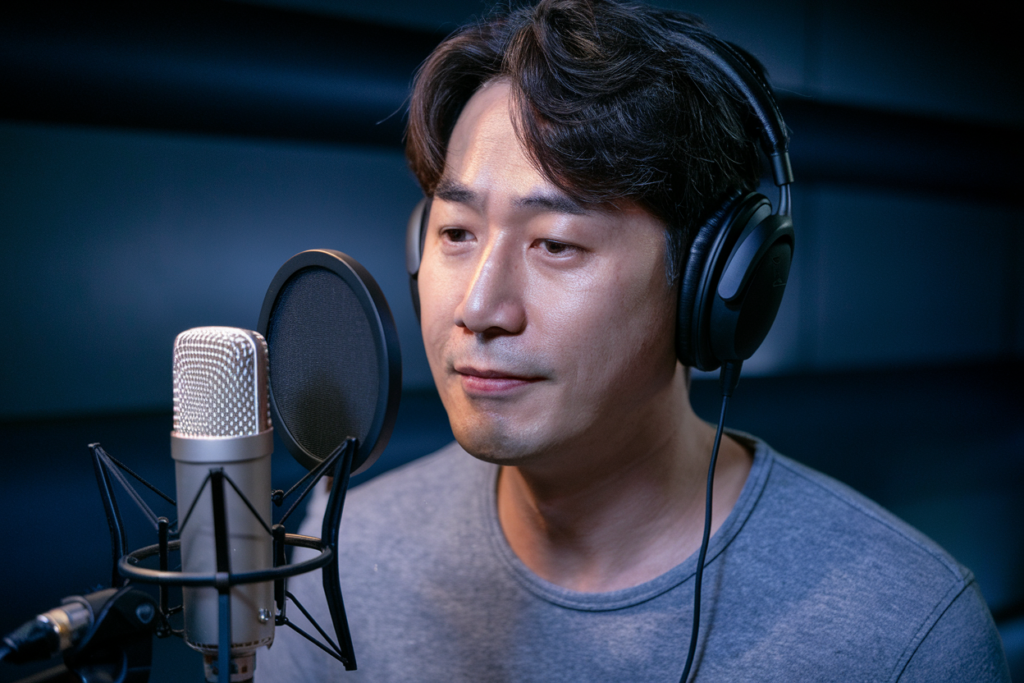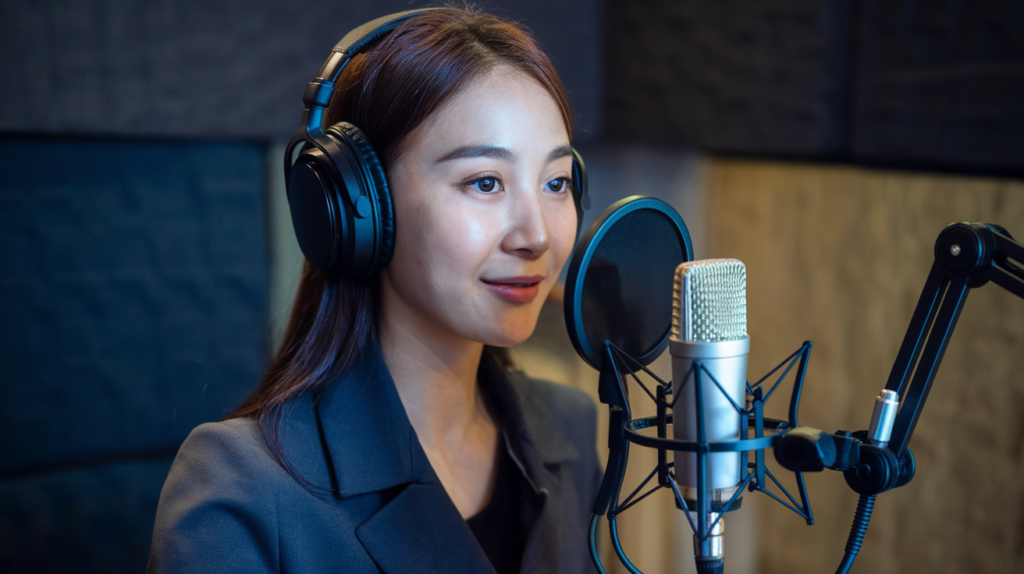Key Takeaways
- Diverse Korean Accents: Understanding the variety of Korean accents is crucial for dubbing; each regional accent, such as Seoul, Busan, and Jeolla, offers unique nuances that enhance character authenticity.
- Standard Korean for Global Appeal: The Standard Korean accent is widely recognized and favored in mainstream media, making it a suitable choice for projects targeting international audiences.
- Regional Accents Enhance Authenticity: Using regional accents like Busan or Jeolla can add depth and relatability to characters, particularly when catering to local audiences or specific cultural contexts.
- Character Background Matters: Selecting an accent should align with the character’s background and personality; this alignment enhances believability in storytelling.
- Versatility in Voice Talent: Skilled voice actors should master multiple accents to adapt their performances appropriately based on context—whether comedic or dramatic—for more engaging voiceovers.
- Audience Consideration is Key: Always consider your target audience when selecting an accent; aligning the chosen accent with audience expectations can significantly elevate your project’s overall impact.
Ever wondered which Korean accent is best for dubbing? With the rise of K-dramas and films captivating audiences worldwide, the choice of accent can make or break a character’s authenticity. You might find yourself torn between the smooth tones of Seoul dialect and the charming nuances of regional accents.
Overview of Korean Accents
Korean accents vary significantly across regions, each offering unique nuances that can enhance the authenticity of dubbing projects. The most recognized accent is the Seoul dialect, often referred to as standard Korean. This accent’s clarity and widespread use make it a popular choice for voice actors, especially in mainstream media like K-dramas.
Regional accents also play a crucial role in character development. For instance, the Busan dialect features a distinct intonation and vocabulary that adds depth to characters from the southeastern coast. Similarly, the Jeolla accent carries its own charm, with softer tones and expressive speech patterns that can resonate well in emotional scenes.
When selecting an accent for voiceovers, consider your target audience. If you’re aiming for international reach, using standard Korean might be optimal. However, if you’re focusing on local audiences or specific character backgrounds, regional accents can bring authenticity and relatability.
Voice talent should showcase versatility by mastering various accents. Skilled voice artists adapt their delivery based on context—whether it’s comedy or drama—to align with character traits effectively. Voice over actors who understand these subtleties create more engaging performances that capture listeners’ attention.
Understanding these nuances helps you choose the best fit for your project. Each accent contributes uniquely to storytelling; picking the right one elevates your content’s overall impact while ensuring cultural accuracy.
Popular Korean Accents for Dubbing
Choosing the right Korean accent for dubbing can significantly impact your project’s success. Consider these popular accents that add authenticity and depth to your characters.
Standard Korean Accent
Standard Korean serves as the foundation of modern communication in South Korea. This accent, often associated with Seoul, is widely understood and favored in mainstream media. Many voice actors prefer it for its clarity and neutrality, making it ideal for international audiences. Using a standard accent ensures that your content resonates with viewers unfamiliar with regional dialects while maintaining an authentic tone.
Busan Accent
The Busan accent brings a distinct flavor to dubbing projects, characterized by its unique intonation and rhythm. Voice talent skilled in this dialect can effectively convey emotions and create relatable characters grounded in local culture. If your project targets audiences from the southeastern coast or aims to capture the essence of Busan life, this accent enhances authenticity and engages listeners on a deeper level.
Jeolla Accent
Known for its rich expressions and melodic quality, the Jeolla accent adds warmth to voiceovers. This regional dialect captures attention with its distinctive pronunciation patterns, allowing voice artists to portray emotionally nuanced characters effectively. If your project involves storytelling rooted in tradition or rural settings, opting for the Jeolla accent can evoke nostalgia while fostering connection among viewers familiar with this cultural backdrop.
Each of these accents offers unique qualities that contribute meaningfully to dubbing projects. Understanding their nuances helps you select the right one based on audience demographics and character requirements, ultimately elevating your storytelling efforts.
Factors to Consider for Dubbing
Selecting the right accent for dubbing projects involves multiple factors that can significantly impact the final product. Understanding these elements ensures you create engaging and authentic content.
Target Audience
Consider your target audience when deciding on an accent. If you’re aiming for international viewers, the Standard Korean accent serves as a strong choice due to its clarity and general understanding. On the other hand, if your project caters to a specific region within Korea, regional accents like Busan or Jeolla can enhance relatability. These accents resonate more deeply with local audiences, connecting them to cultural nuances in a way that’s both meaningful and memorable.
Character Authenticity
Character authenticity plays a crucial role in successful dubbing. Each character’s background influences their speech patterns and accent choices. For instance, using the Jeolla dialect might evoke nostalgia or traditional themes, making it ideal for storytelling steeped in heritage. Conversely, if a character hails from Seoul’s urban setting, employing the Seoul dialect can highlight their modernity and sophistication. Ensuring voice actors embody these traits enhances believability, drawing viewers into your narrative effectively.
By aligning accents with audience expectations and character identities, you create voiceovers that resonate on multiple levels—culturally and emotionally—leading to compelling storytelling in your dubbing projects.
Industry Recommendations
When selecting a Korean accent for dubbing, it’s crucial to consider industry insights. The choice often hinges on the target audience and project context. For international projects, many professionals recommend using the Standard Korean accent due to its clarity and wide recognition. This accent resonates well with diverse audiences, making it an ideal option for voiceovers aiming for global reach.
If you’re working on projects focused on specific regions or themes, regional accents can be invaluable. The Busan accent stands out with its emotional depth and unique intonation, making it perfect for stories that require strong local connections. Alternatively, the Jeolla dialect offers rich expressions that evoke nostalgia, ideal for traditional narratives or rural settings.
Voice talent should also showcase versatility in their skillset by mastering multiple accents. This flexibility allows voice artists to adapt their performances based on character backgrounds and emotional tones, enhancing overall storytelling effectiveness. Clients looking for authentic delivery should prioritize voice actors who understand these distinctions.
Ultimately, aligning your chosen accent with audience expectations can elevate your project’s impact. By thoughtfully considering how each accent contributes to character authenticity and cultural resonance, you’ll create compelling voiceovers that truly connect with viewers.
Conclusion
Choosing the right Korean accent for dubbing can make all the difference in your project’s success. Whether you opt for the clarity of Standard Korean or the emotional depth of regional accents like Busan or Jeolla, each choice carries unique implications for character authenticity and audience connection.
By considering the target audience and character backgrounds, you’ll enhance storytelling impact and create voiceovers that resonate more deeply with viewers. Embracing versatility in accent mastery is key to delivering compelling performances that capture the essence of your characters and their narratives.
Frequently Asked Questions
Why is choosing the right Korean accent important for dubbing?
Choosing the right Korean accent enhances character authenticity and appeal, particularly in K-dramas and films. Different accents convey unique emotions and cultural nuances, making them essential for effective storytelling.
What are the main types of Korean accents used in dubbing?
The main types include Standard Korean (Seoul dialect), Busan dialect, and Jeolla dialect. Each offers distinct qualities that cater to different audiences and enhance character relatability.
When should I use Standard Korean versus regional accents?
Standard Korean is ideal for international projects due to its clarity and neutrality. Regional accents like Busan or Jeolla work best for local audiences or specific storytelling themes to create emotional connections.
How do regional accents affect viewer perception?
Regional accents can evoke nostalgia and authenticity, making characters more relatable. They add depth to storytelling by aligning with the cultural background of the audience.
What factors should be considered when selecting an accent for a project?
Consider your target audience, character background, and overall project context. Choosing an appropriate accent ensures cultural accuracy while enhancing emotional resonance with viewers.
How can voice talent prepare for diverse accent requirements in dubbing?
Voice talent should practice mastering multiple accents through training and experience. This versatility allows them to adapt delivery based on character traits and audience expectations effectively.
What role does culture play in choosing a Korean accent for dubbing?
Culture influences speech patterns, expressions, and audience preferences. Selecting an accent that aligns with these elements enriches storytelling by creating a culturally resonant voiceover experience.







